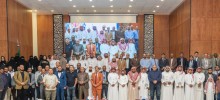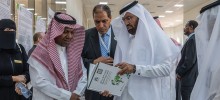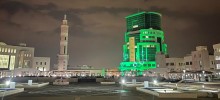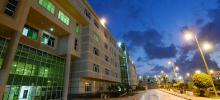International news channels frameworks in covering terrorism.
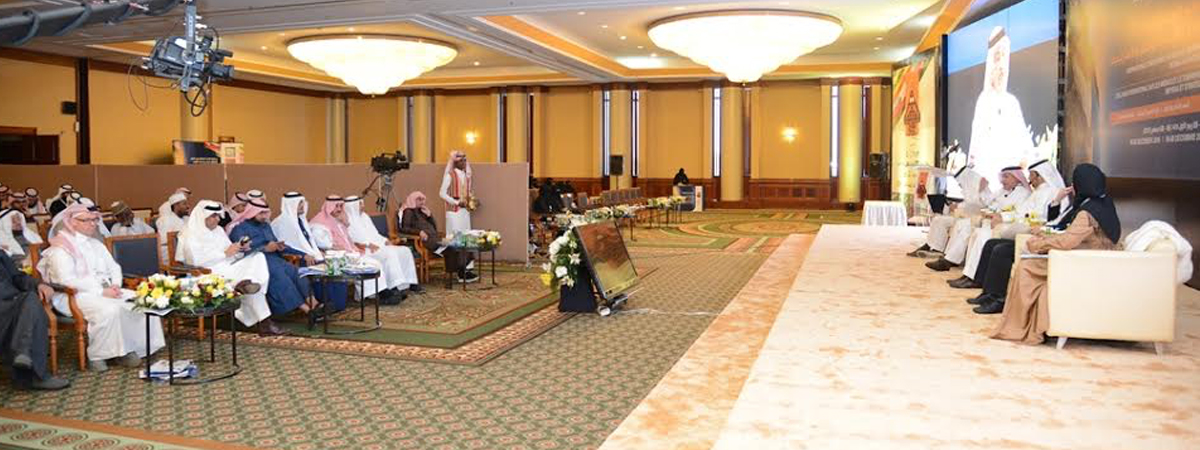
Within the sessions of the International Conference on Media and terrorism at King Khalid University,
International news channels frameworks in covering terrorism
The sessions of the second International Conference on media and terrorism: means and strategies, which were hosted by King Khalid University (KKU), during the period from 7 to 9 this month, a session entitled: Frameworks cover international news channels for terrorism, was led by Prof. Muhammad Alehizan.
The session began with a paper entitled: factors affecting the footage material, photographs of the terrorist organizations in the websites of Arabic TV channels, practical Study on Al Jazerah and Al Arabia websites. The research was presented by Dr. Ahmed Mustafa Kamel Al-Sabri, from Al Jazerah University in Dubai, United Arab Emirates. Dr. Al Sabri said, "The internet has enabled terrorist organizations to own media outlets without restrictions, and through which they could transmit many photos, footage materials, and documents, as confirmed by many studies." He added, "The danger is not represented only in the publication of these organizations of images and footage materials, but also in the Arab media which respond to that footage material by re-publishing, which may contribute to the spread of the idea of terrorism itself, in addition to influencing and incitement through the free propaganda for these materials"
After that, there was another study provided by Dr. Amira Mustafa Ahmed Mohamed Al batrek, from the Gulf University in Bahrain. The topic of the study was about media treatment of the crimes of radical terrorist organizations on the Syrian territory in Russia Today (RT) channel for Arabs. This study sought to monitor media treatment frameworks, and how Russia Today channel evaluates the developments of the Syrian crisis in light of the escalating terrorist operations on Syrian land.
Then, there was a study entitled: media treatment of the phenomenon of terrorism across the Arab portals - Arabia Net website as an example. The study was presented by Dr. Bahaa Eddin Ali Bashir Hamid, from the University of Modern Science in Dubai. This study sought to target the basic goal emanating from its main question: how Arab portals deal with the phenomenon of terrorism, their effectiveness and their methods, and whether they are different from other media methods in handling the phenomenon of terrorism.
Dr. Sa'ed Boualem Sa'ed, from the media and communications department of King Khalid University, presented a research titled: media treatment requirements for terrorist acts survey for channels of France 24, Al-Arabiya, and Algerian television. Dr. Boualem said, "The terrorist acts have bad shock, not only in society but also in the media and ways of dealing with those terrorist acts. Media - at first glance – is trapped by terrorist organizations through the media's provision of a free service to such terroristic organizations by announcing the news of the attacks and results. Thus, some media - especially the heavy ones - have started to change the treatment pattern of news they receive. They have adopted a style of opacity to some terrorist acts, for economic, political, and even touristic purposes in some cases. This style is not limited to the treatment of the news related to the Arab and Muslim world but has spread to Europe and Asia.

